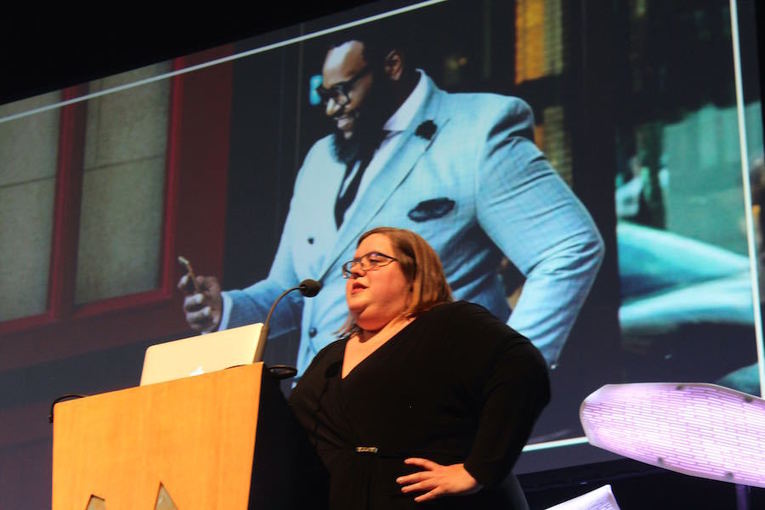
OEN Member NewsAllgo One of Five Pitchfest NW Finalists (Oregon Business)
In the grand finale of Tech Fest Northwest on Friday, five promising startups pitched to a panel of big-name judges that included Rukaiyah Adams, Chief Investment Officer of the Meyer Memorial Trust.
The winner took home a free brand situation analysis and space in an incubator or accelorator in the “Portland Innovation Quandrant,” a planned network of science and technology startups to be located in the area around OMSI.
Winner: Goodnuss
Testifying to the booming market for vegan products, judges awarded the top prize to Goodnuss, a nut milk company with an affinity for nut puns.
The startup, founder Lizz Hampton explained, aims to replace traditional nut milk—which she says is only 2% nuts and 98% water, sugar and additives—with an easy homemade option.
The company sells “nut sacks,” pre-packaged kits containing nut pulp, so consumers can “milk their nuts” at home instead of buying heavily processed products. The approach is in line with a growing movement to replace unhealthy, processed vegan foods with wholesome homemade ingredients.
Other Finalists
Hooke Audio
The judges were all ears for what this startup pitched as the next revolution after 3D movies—3D audio. The startup makes headphones that play “binaural” recordings, sounds captured with two microphones, similar to the way our ears work. Founder Anthony Mattana, a former theatrical sound designer, said the technology will created a $12 billion market by 2025.
Blade Runner Energy
Blade Runner pitched its “micro-hydro” solution, basically a small propellor that reduces costs by keeping the generator and storage systems above water. A single operator can handle the whole system. The company has met with some early success — it received a National Science Foundation grant and completed open water tests in September 2017. The founders are seeking $600,000 to further develop the system.
AllGo
AllGo pitched itself as “Yelp for fat people.” The consumer-generated review site informs overweight Americans about what they’re getting into when they go out—the size of doors and hallways, chairs with arms and other possible obstructions.
“I was tired of scrolling through countless pictures of ravioli just to see if the chairs had arms,” said CEO Rebecca Alexander.
While receptive to the idea, the judges were concerned about competition. Review sites that offer similar functions abound.
Cirkled In
Tuition costs at universities keep rising, maybe in part because recruiters spend billions on attracting students that never set foot on campus. Cirkled In Founder Reetu Gupta pitched a solution: a “LinkedIn for students,” that will let students keep their application in one place easily accessible to recruiters.
The judges questioned what new information administrators could glean from Cirkled In beyond what they already know from standarized tests and applications.
Source: www.oregonbusiness.com

